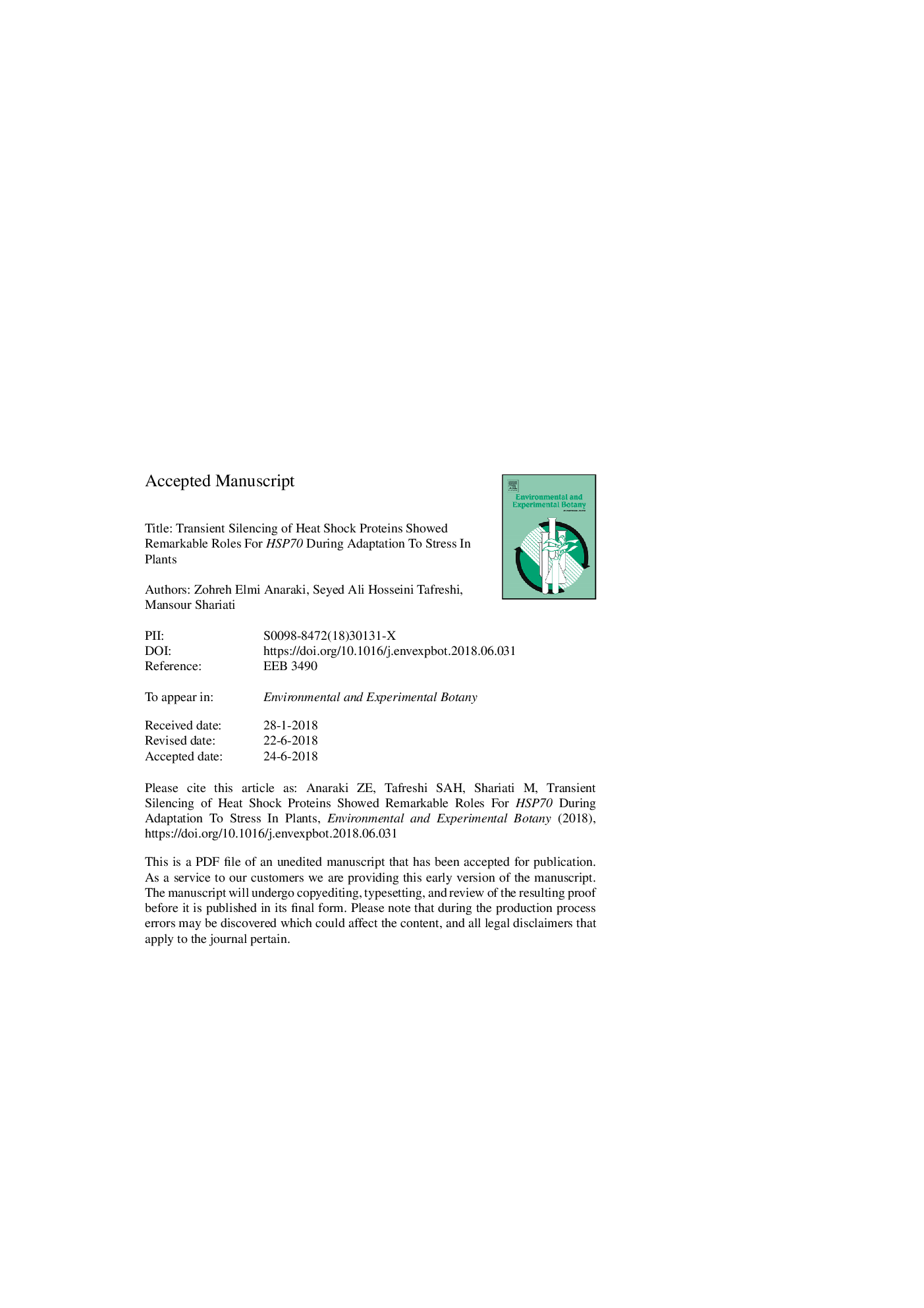| Article ID | Journal | Published Year | Pages | File Type |
|---|---|---|---|---|
| 8886823 | Environmental and Experimental Botany | 2018 | 36 Pages |
Abstract
Heat shock proteins (HSPs) have vital roles during plant adaptation to biotic and abiotic stresses, as well as stress-free conditions. In the present study, we used a heterologous strategy of virus induced gene silencing to investigate the role of different classes of HSPs in Nicotiana benthamiana. Different growth and physiological parameters in silenced plants were evaluated under both control and salt stress conditions. Among the treatments, silencing of HSP70, especially under salinity regime, was found to have stronger impacts on growth, protein concentration, the accumulation of photosynthetic pigments, proline and total soluble carbohydrates content, malondialdehyde, the activity of antioxidant enzymes, performance index, relative water content and the ratio of K+/Na+, suggesting a more prominent role for HSP70 in both stressful and stress-free life cycle of the plants. Principal component analysis and hierarchical clustering indicated that HSP70 gene was silenced, the plants might effectively respond to stress by a higher accumulation of compatible solutes, like proline to protect the cell membranes and proteins from damage.
Keywords
HspAPXTCATBATRVTBARSMDAHeat shock proteins (HSPs)RWCCATBSAROSHydrogen peroxidebovine serum albuminSalinity stresstrichloroacetic acidThiobarbituric acidVIGSPerformance índexmalondialdehydeRelative water contentH2O2turgid weightfresh weightdry weightVirus induced gene silencingTobacco rattle virusascorbate peroxidaseHeat shock proteinCatalaseReactive oxygen species
Related Topics
Life Sciences
Agricultural and Biological Sciences
Ecology, Evolution, Behavior and Systematics
Authors
Zohreh Elmi Anaraki, Seyed Ali Hosseini Tafreshi, Mansour Shariati,
